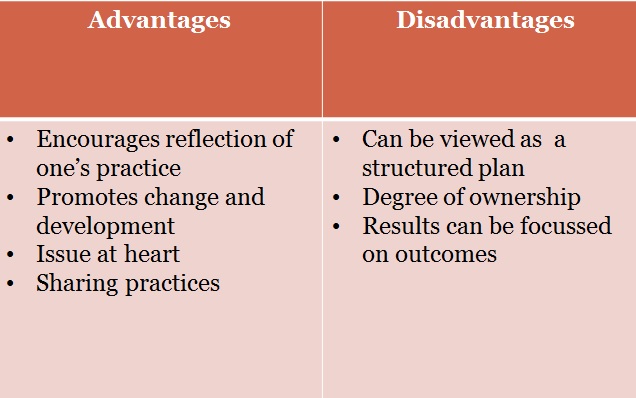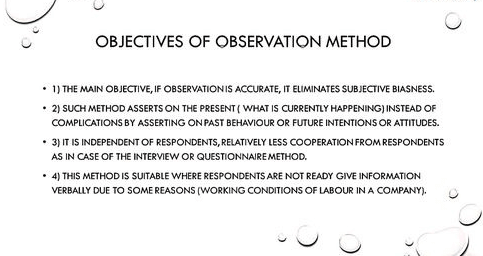Have you ever found yourself engrossed in watching people interact, their behaviors providing a window into their thoughts and motivations? This innate human curiosity forms the basis of observation research, a powerful tool employed by researchers across various disciplines. But like any scientific method, observation research comes with its own set of advantages and disadvantages. Understanding these nuances is crucial for researchers to make informed decisions about the suitability of this approach for their specific research questions.

Image: actionresearchds1.weebly.com
Observation research, in its simplest form, involves systematically observing and recording the behavior of individuals or groups in their natural environments. This method is widely used in fields such as anthropology, psychology, sociology, and marketing, offering valuable insights into human behavior and social dynamics. But before diving into the intricacies of observation research, let’s understand the fundamental advantages and disadvantages that shape its applicability and effectiveness.
Advantages of Observation Research
1. Unfiltered Insights into Natural Behavior
One of the greatest strengths of observation research lies in its ability to capture spontaneous, unfiltered behavior. Unlike surveys or interviews, which rely on participants’ self-reported data, observation allows researchers to observe individuals in their natural settings, free from the potential biases of introspection or social desirability. This approach yields a more authentic picture of human behavior, reflecting how people truly act rather than how they claim to act.
2. Comprehensive Data Collection
Observation research provides a rich tapestry of information, encompassing both verbal and nonverbal cues. Researchers can record not only what people say but also how they say it, their facial expressions, body language, and interactions with their environment. This comprehensive data collection allows for a more holistic understanding of the phenomenon being studied. This richness of data is particularly valuable for studying complex social interactions and cultural contexts.

Image: dfinesalon.com
3. Access to Unconscious or Difficult-to-Articulate Behavior
Often, people struggle to articulate their true motivations, beliefs, or even their own subconscious influences on their behavior. Observation research can effectively bridge this gap, capturing behaviors that individuals may not be aware of or are unwilling to disclose. This can be particularly beneficial in studying topics like consumer behavior, where unconscious factors play a significant role in purchase decisions.
4. Reduced Bias and Improved Validity
By minimizing the influence of self-reporting, observation research reduces the risk of social desirability bias, where participants might alter their responses to present themselves in a favorable light. This increased objectivity enhances the validity of the findings, making them more accurate and reliable reflections of real-world behavior.
Disadvantages of Observation Research
1. Limited Control Over Variables
One of the primary limitations of observation research lies in its lack of control over extraneous variables. Unlike laboratory settings where researchers meticulously manipulate conditions, observations are conducted in naturally occurring environments, making it difficult to isolate specific variables of interest. This lack of control can lead to conflicting interpretations of the data, making it challenging to establish clear cause-and-effect relationships.
2. Potential for Observer Bias
The subjective nature of observation research introduces the potential for observer bias, where the researcher’s preconceptions or expectations influence their interpretation of the observed behavior. To mitigate this challenge, researchers must rigorously train observers to minimize subjectivity and maintain consistency in their observations.
3. Ethical Considerations
Observation research raises ethical concerns, particularly in situations where participants are unaware that they are being observed. Maintaining participant anonymity and minimizing potential harm are paramount considerations. Researchers must carefully balance the potential benefits of the research with the rights and privacy of those being observed.
4. Time-Consuming Nature
Conducting observation research can be time-consuming and resource-intensive. The process of observing behaviors, recording data, and analyzing the findings can require considerable time and effort. This can be a deterrent for research projects with tight deadlines or limited resources.
5. Difficulty in Generalizing Findings
Observations are often conducted within specific contexts, making it challenging to generalize the findings to broader populations. For example, a study observing consumer behavior in a local grocery store might not accurately reflect the behavior of consumers in other locations or with different demographics.
Types of Observational Research
Observation research can be categorized into different types, each with its own unique strengths and limitations. Understanding these variations is crucial for selecting the appropriate method for specific research objectives.
1. Participant Observation
In participant observation, the researcher actively participates in the group or activity being observed. This approach allows for a more intimate and immersive understanding of the social dynamics and cultural norms of the group. However, participant observation can lead to potential biases and ethical complexities, as the researcher’s involvement may unintentionally influence the group’s behavior.
2. Non-Participant Observation
Non-participant observation, as the name suggests, involves observing the group or activity without actively participating. Researchers maintain a detached position, minimizing the potential for their presence to alter the behavior of those being observed. However, this approach can limit the researcher’s access to in-depth insights and understanding of the group’s internal dynamics.
3. Structured Observation
Structured observation involves using a predefined set of categories and codes to record behaviors. This rigorous approach ensures consistency in data collection and facilitates objective analysis. However, the use of predetermined categories may potentially overlook unforeseen aspects of behavior that fall outside the defined framework.
4. Unstructured Observation
Unstructured observation allows researchers to record behaviors without pre-defined categories or codes. This approach offers flexibility and the potential to discover unexpected patterns, but it also poses challenges in terms of data analysis and interpretation.
Tips for Effective Observation Research
For researchers employing observation techniques, several practical tips can enhance the quality and reliability of their findings.
1. Clear Research Objectives
Defining clear research objectives before starting the observation process is paramount. What specific behaviors or phenomena are you hoping to observe and understand? Having well-defined objectives guides data collection, analysis, and interpretation.
2. Rigorous Training for Observers
Involving multiple observers can help minimize bias and enhance the reliability of the findings. However, ensuring consistent observations requires rigorous training to standardize recording methods and reduce inter-observer variability.
3. Maintain Ethical Considerations
Researchers must prioritize participant anonymity, informed consent, and the potential for harm. Depending on the nature of the research, obtaining informed consent might be necessary, or alternative means of ensuring privacy and anonymity should be implemented.
Advantages And Disadvantages Of Observation Research
Conclusion
Observation research offers a valuable window into human behavior, providing rich, authentic insights into social dynamics and cultural contexts. Despite its advantages, researchers must carefully weigh the potential biases, ethical implications, and limitations associated with this method. By thoughtfully planning their research, minimizing observer bias, and adhering to ethical principles, researchers can effectively leverage observation research to unveil the intricacies of human behavior and contribute to a deeper understanding of our world.





